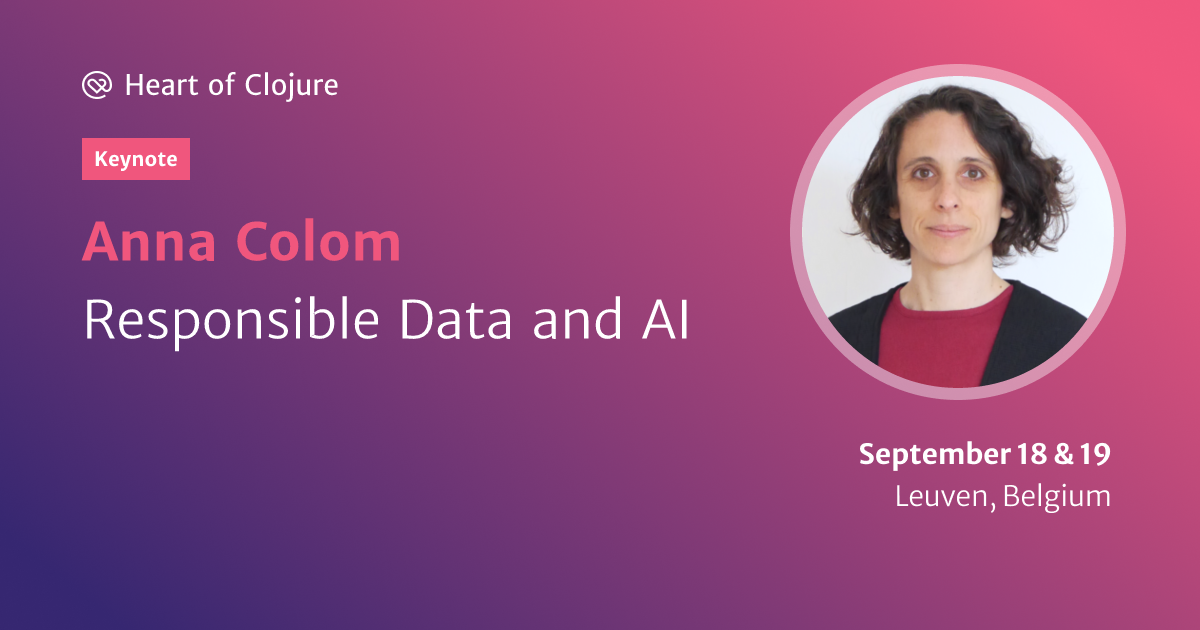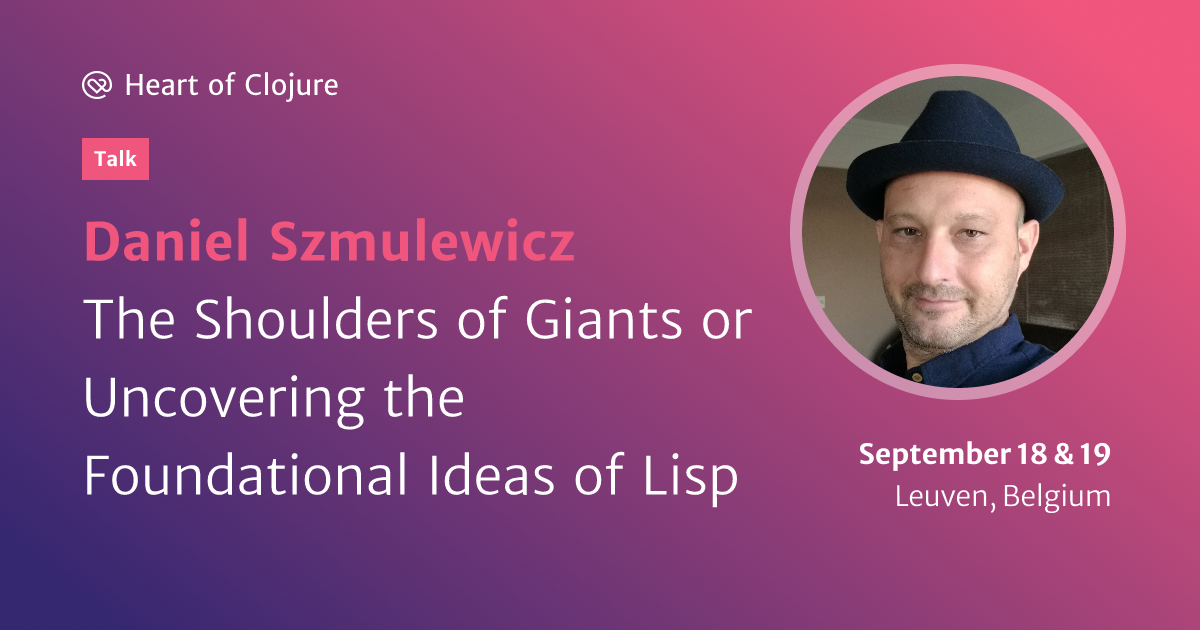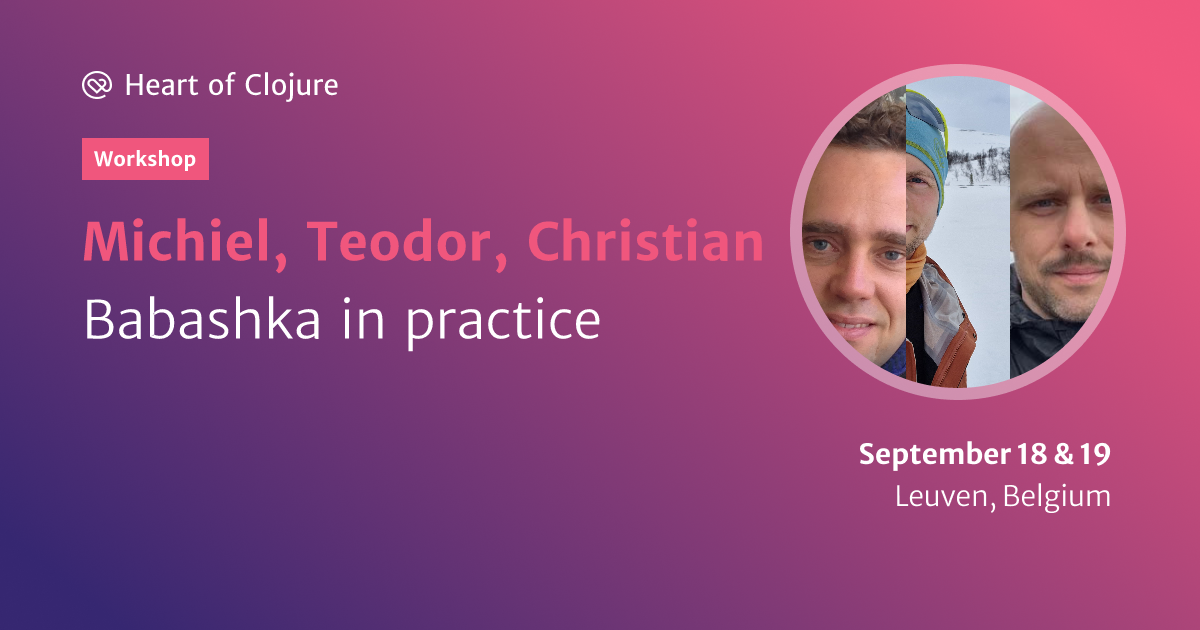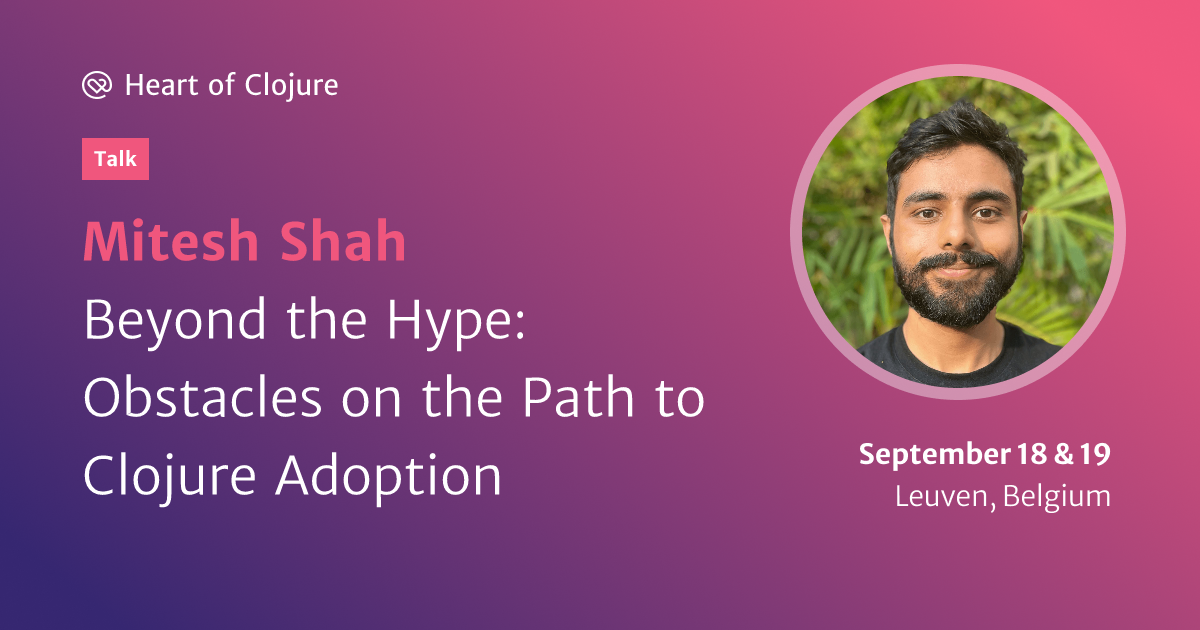More Speaker Announcements: AI, XTDB, and the Foundations of LISP
Today we're announcing our third cohort of speakers and workshop hosts for Heart of Clojure, after we announced the first five on Friday, and the second five on Monday
Anna Colom

In the tech industry we're no strangers to hype cycles, but the latest AI wave has hit with a rare ferocity. Suddenly AI is everywhere, and if, as a software developer, you're not yet being asked to work on or with AI systems, chances are you will be very soon.
This makes many of us uneasy, as there are quite a few reasons why applying AI indiscriminately and uncritically can be reason for concern. That's why we as organizers thought it was important to address this topic head-on, and so we're very happy to have Dr. Anna Colom with us to talk about Responsible Data and AI.
Until recently Anna worked at the Ada Lovelace Institute, a research institute with a mission to ensure data and AI work for people and society. She has since joined Data Tank, a "think and do tank", which aims to serve the common good by using data responsibly.
Anna holds a PhD in Political Science from the Open University, where she applied an intersectional lens to understanding how instant messaging mediates citizenship capabilities. She was formerly a journalist, documentary filmmaker and participatory video facilitator.
Daniel Szmulewicz

Five years ago, at the first Heart of Clojure, we asked Daniel if he wanted to be a backup speaker, in case any of the speakers had to cancel last minute. He prepared a talk, and stood stand-by during the conference, but in the end did not get to speak.
This time, we're happy to give him his time to shine. Five years in the making, this talk will dive into the rich history of Lisp, and the ideas that came before it, starting at the end of the 19th century, long before McCarthy and the meta-circular evaluator. We will meet Hilbert, Gödel, Church, Turing, and others. By exploring these foundational ideas and their connections, you will gain a deeper appreciation for the giants upon whose shoulders we stand and the intellectual legacy that has shaped our field.
Michiel Borkent, Teodor Heggelund, and Christian Johansen

The Clojure ecosystem owes Michiel Borkent a great debt. SCI and Babashka, clj-kondo, Squint, Cherry, Edamama, Jet, you name. The borkdude does it all.
Babashka in particular turned out to be a game changer, as for the first time we could run Clojure code with virtually no startup cost, opening the door to scripting and tooling.
Together with two Babashka contributors, Teodor Heggelund and Christian Johansen, they will lead a practical workshop, showing you how to get the most out of this nimble interpreter.
Mitesh Shah

Within the Clojure community it seems almost self-evident why we use Clojure. It's hard to imagine using anything else. It's functional, elegant, concise. The REPL provides probably the best feedback loop a developer can ask for. A culture of stability means we don't waste time chasing braking changes, and with all the alternative implementations now (cljs, bb, nbb, jank, squint, cherry), the reach is greater than ever.
And yet outside of the Clojure world the perception is very different. Lisps are considered arcane and niche, impractical, hard to hire for. Who in their right mind would choose that as the foundation for their tech stack?
A lot has been said already about community growth, about making the language more friendly and accessible. By openly discussing the issues and collborating on solutions, Mitesh hopes to convince you that we can propel Clojure beyond it's current position as a powerful defacto business choice.
Jeremy Taylor

XTDB, the bitemporal and unbundled data store from JUXT, is a darling in the Clojure community. A powerful and flexible open source document store, with support for both "transaction time" and "valid time" is a very compelling offering.
The original XTDB used Datalog as its query language, which many folks were already familiar with from Datomic, Datascript, and others. Yet for the second major version of XTDB JUXT decided to drop Datalog and embrace SQL.
Jeremy will explain why that is, what the benefits are of leveraging the SQL standard, and the bitemporal features it supports.
Sponsors
Heart of Clojure is made possible thanks to the support of our Gold Sponsors: Nubank, Clojurists Together, Latacora, and Exoscale.







Comments ()